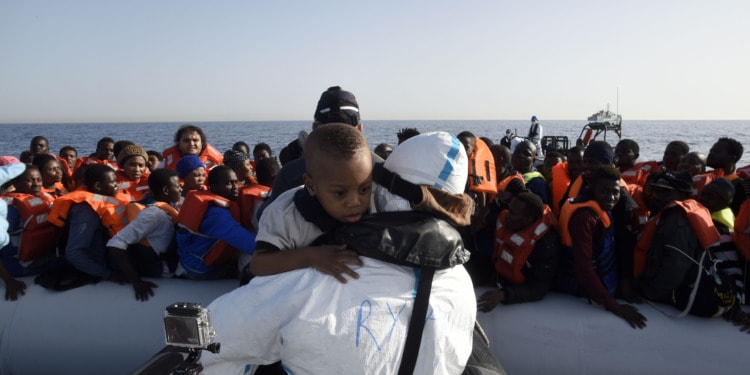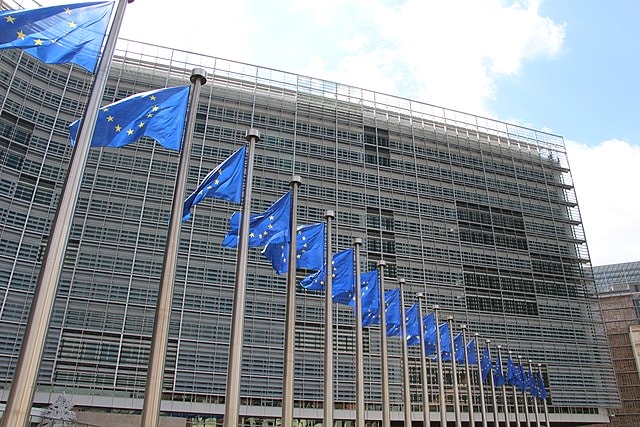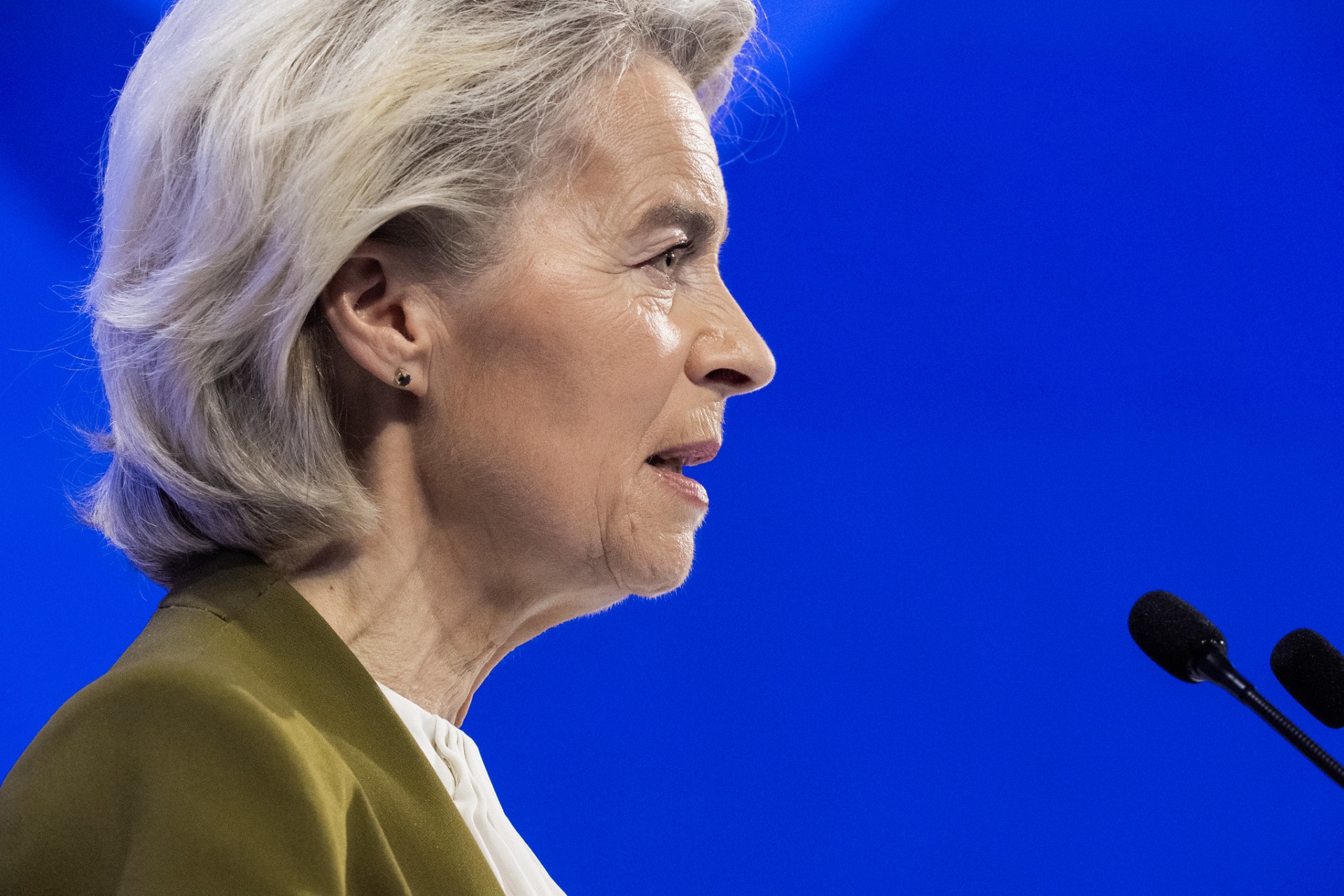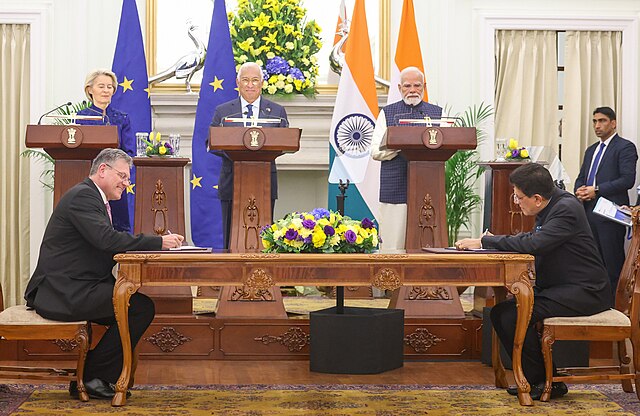From the outset of its term, Italy’s new right-wing government, elected in October 2022, made waves across the EU with a controversial new migration policy.
Prime Minister Giorgia Meloni, who is on record saying that Italy should “repatriate migrants and sink the boats that rescued them,” has made a hard-line commitment to preventing North African asylum seekers from entering the country.
The measures, which were met with shock across Europe, involve the threat of penalty on charities that rescue migrants at sea.
The policy dictates that ships must head “without delay” to the Italian port assigned to them after rescue. Vessels typically carry out multiple rescues while at sea, and the new policy attempts to prevent them from doing so.
Search and rescue organisations, including Doctors Without Borders, released a joint statement in which they condemned the Italian decree, saying it “contradicts international maritime, human rights and European law.”
On lack of compliance with the rules set out by the Italian government, charities risk fines of up to 50,000€ and the impoundment of their vessels. But organisations have continued to operate. German NGO Sea-Eye has asked its government for protection, while Doctors Without Borders’ vessel “Geo Barents” has resumed its rescue route in the Mediterranean.
Matteo Piantedosi, the Italian interior minister, described the people risking their lives to reach Europe as “residual cargo.” Member of the Italian Chamber of Deputies Enrico Letta met Piantedosi’s words with disdain, deeming them contrary to principles of humanity and international law.
The election of Brothers of Italy, a party with post-fascist origins, is in predictable accordance with the historical pattern of extremism being accepted as a solution to a crisis.
The European Union (EU) Home Affairs Commissioner Ylva Johansson has said that the EU is facing the biggest refugee crisis since World War II. The 2015 crisis saw 1.5 million people seeking refuge from conflict and persecution in the Middle East. In 2022, after Russia’s invasion of Ukraine, at least 4.8 million displaced Ukrainians have been taken in across Europe.
Border management agency Frontex expects migration to continue to increase. As the agency writes in its “risk management report:
“In the next decade, EU border management will experience a higher occurrence of migration/refugee crises (or disproportionate pressures) that will test the effectiveness of border controls. The complex interplay of geopolitics, security conflicts, and other megatrends will influence different regions of the world, including countries in close proximity to Europe.”
Cracks in European Unity
Tensions are increasing between European countries over the unequal assumption of responsibility.
“Why is it that all of France has fewer Ukrainians than just the German state of Baden Württemberg? And why is it that France, Italy and Spain together have fewer Ukrainians than the Czech Republic?” Chairman of the European Stability Initiative Gerald Knaus asked.
Italy’s Meloni hopes that the European Union will pay Libya to house refugees and thus prevent them from reaching Europe, reports Reuters. The EU struck such a deal with Turkey in 2016, paying Ankara to house refugees. Meloni has not acknowledged the abysmal human rights abuses reported in Libya.
Related Articles: EU to Impose Trade Penalties on Countries That Refuse to Take Back Migrants | Immigration Reforms: Germany Prepares to Loosen Regulations for Non-EU Migrants
But while entities such as Brothers of Italy peddle defensive nationalism as the only solution to the strains of refugee crises, other political figures offer more self-reflective accounts.
Deputy mayor of Leipzig, Germany, Thomas Fabian has said that many cities are struggling because they initially refused to implement the right infrastructure to house refugees. Indeed, temporary accommodation is more expensive, harder to manage, and is generally associated with worse conditions.
Fabian says he believes that EU leaders must accept that migration is a part of life and leadership in Europe.
Lack of Urgency Under Swedish EU Presidency
The EU’s current policy on migration – the “Dublin Rules” – designates responsibility for migrants on their point-of-entry state. Open borders in the Schengen area mean that this system is not working as intended.
With increasingly polarised stances on the subject, the need for revised – and effective – migration policy is clear. But a new policy is not yet on the horizon.
Sweden has assumed its six-month presidency of the EU, and Lars Danielsson, the country’s ambassador to the EU, has said that while new policies will be worked on over the next six months “with full force,” there will be no completed migration pact during the Swedish presidency, and likely not before 2024.
The current lack of oversight is not only worsening the plight of migrants, but is also rendering the challenge less and less manageable for European states.
How the crisis will be dealt with before a new policy comes into effect remains to be seen. Improved management, reduced polarisation, and better conditions for migrants are as yet hard to imagine.
Editor’s Note: The opinions expressed here by the authors are their own, not those of Impakter.com — In the Featured Photo: Migrant rescue mission. Source: Flickr.













